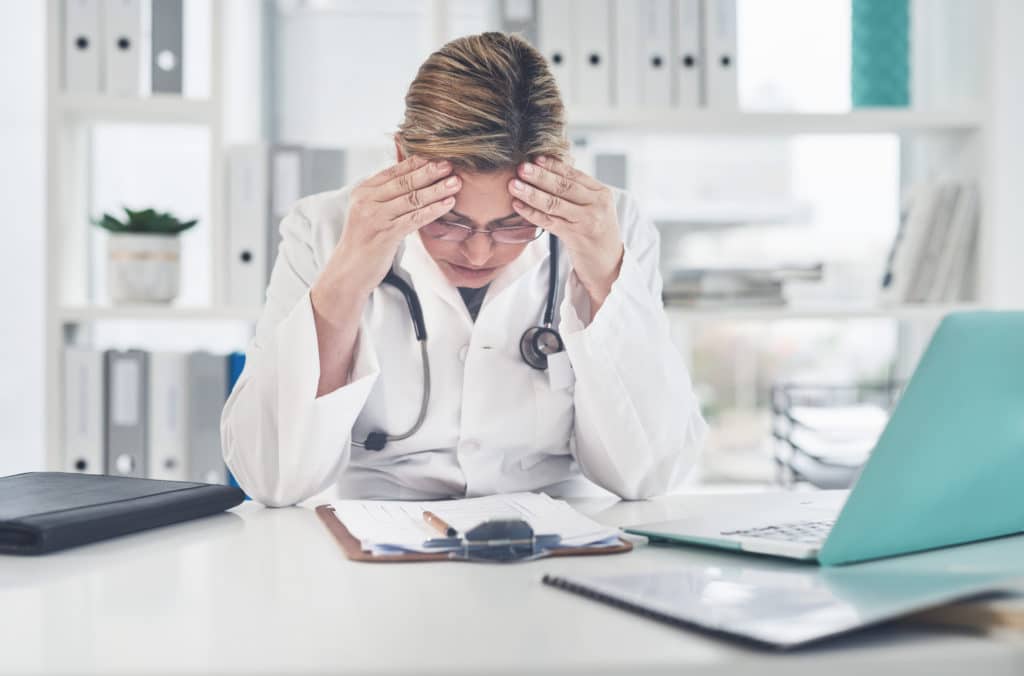Physician burnout has become one of the most urgent challenges in modern medicine. Despite their training to heal others, doctors often suffer in silence with depression, anxiety, suicidal thoughts, and chronic exhaustion. A recent report published in JAMA Network Open on August 14, co-authored by Dr. Jesse Ehrenfeld, highlights the systemic gaps that continue to put physicians’ mental health at risk.
For Ehrenfeld, an anesthesiologist and executive director of the Advancing a Healthier Wisconsin Endowment, the issue is personal. Over the course of his career, he has lost three colleagues to suicide—all before reaching his 50s. “The problem is not the person,” he explained. “The problem is the system we drop these people into.”
The Mental Health Crisis in Physicians
The statistics reveal a sobering reality. Nearly one-third of physicians suffer from depression, one in four struggles with anxiety, and around 10% live with post-traumatic stress disorder (PTSD). These rates are far higher than those in the general population. Female physicians, in particular, have a 53% higher risk of dying by suicide compared with women outside the profession.
Certain specialties—such as anesthesiology, surgery, psychiatry, and primary care—face an even greater burden. At the same time, substance use and problematic alcohol consumption are rising, with 27% of doctors reporting harmful drinking in the last 15 years. Physician burnout often drives these behaviors, acting as both a warning sign and a risk factor for worsening mental health.
Culture of Fear, Stigma, and Physician Burnout
One of the biggest barriers to seeking help is stigma. According to the JAMA report, 30% of early medical students, 53% of final-year students, and 58% of residents cited stigma as a primary reason they avoid treatment. Many fear that acknowledging physician burnout or disclosing therapy could harm their careers.
This fear stems from outdated systems. A 2007 survey found that nearly one-third of state licensing boards would sanction a physician based solely on a mental health diagnosis. As a result, many physicians conceal their struggles, letting burnout deepen until it becomes unmanageable.
Dr. Mariah Quinn, chief wellness officer at UW Health, emphasizes that medicine often equates perfection with success. Doctors are expected to work endless hours, suppress vulnerability, and maintain “superhuman” standards of clinical excellence. These cultural expectations feed physician burnout, leaving many feeling isolated and unsupported.
Personal Stories of Struggle
The toll of physician burnout is not just statistical—it is deeply human. Dr. Ehrenfeld recalls collapsing from an injury during medical school, only to be told to return and make up his shift. Similarly, Dr. Michael Stadler, a surgeon, describes battling guilt and exhaustion after treating critically ill cancer patients. At one point, he nearly left medicine entirely.
“We don’t generally talk about these things,” Stadler admitted. “I felt isolated and alone.” His story reflects the silence surrounding physician burnout and its impact on doctors’ personal lives.
Systemic Gaps and the Need for Reform
Wisconsin is one of only three states without a confidential professional health program for doctors. Such programs in other states allow physicians to seek help for burnout, mental health issues, or substance use without fear of losing their license.
To close this gap, Ehrenfeld and Stadler are leading the Health Workforce Wellbeing Initiative with the Wisconsin Hospital Association and the Dr. Lorna Breen Heroes Foundation. The initiative focuses on:
- Reforming intrusive licensing and credentialing questions.
- Educating physicians on the differences between burnout and mental illness.
- Building a statewide coalition to break down silos and promote wellness.
Burnout vs. Mental Illness
Although physician burnout and depression share overlapping symptoms, they are not identical. Burnout is work-related, characterized by emotional exhaustion, detachment, and reduced sense of accomplishment. Depression, on the other hand, is a diagnosable mental health condition that may occur independently of work stress.
Dr. Quinn warns that normalizing burnout as “just part of the job” prevents meaningful change. Addressing it requires both cultural reform and systemic support.
Looking Ahead
The COVID-19 pandemic exposed both the vulnerabilities and resilience of health care workers. Short-term solutions like free meals, respite rooms, and peer grief sessions helped temporarily. But sustainable change means addressing physician burnout at its roots—by dismantling stigma, reforming licensing policies, and building confidential support systems.
By protecting the well-being of physicians, the medical community ensures that those who heal others are also given the care they desperately need.
FAQs on Physician Mental Health
Why are physician suicide rates higher than the general population?
Doctors face chronic stress, long hours, exposure to trauma, and high expectations. Physician burnout and stigma often prevent them from seeking timely help.
What is the difference between burnout and depression?
Doctors face chronic stress, long hours, exposure to trauma, and high expectations. Physician burnout and stigma often prevent them from seeking timely help.
Why don’t physicians seek help for mental health?
Fear of stigma, career repercussions, and punitive licensing practices make many avoid addressing burnout and related conditions.
What reforms are being made?
Programs like the Health Workforce Wellbeing Initiative aim to reform licensing questions, reduce stigma, and create confidential support for physicians.
How can the medical culture shift?
By promoting open conversations, acknowledging physician burnout, and prioritizing self-care, medicine can move from silence to genuine support.



